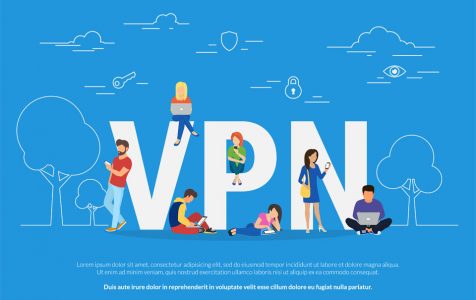A VPN or virtual private network is often used to protect one’s privacy when using the Internet. It provides an additional level of security for sensitive information online. Virtual private networks work by creating a digital tunnel in which your internet connection is routed through secure servers It masks your IP address, encrypts your data, and implements other online security features that make it impossible for other users to view your data and identify your network and the computer. And while most individuals and businesses use the service for online privacy, VPNs go beyond simple protection and this article will list down the cool benefits of VPN.
Stream YouTube videos and other websites without your ISP slowing down.
Streaming video content is the number one consumer of Internet bandwidth today. YouTube, Netflix, Vimeo, and other video streaming sites consume too much data, causing many ISPs to throttle the connection speed just to cut back on usage. This, in turn, also reduces your connection speed. You can get around this by using VPN. Using VPN, like Outbyte VPN, allows you to watch YouTube and other videos without buffering, connection slow-down, or outages.
Play your favorite games without being throttled by your ISP
Videos are not the only content that consumes a significant amount of data. Online games are bandwidth-hungry culprits that ISPs are watching out for and most online games use BitTorrent, another bandwidth-hogger tool, to send out updates and bug fixes. Because of this, online gaming is often targeted for throttling resulting in outright blockage by some ISPs. So when you use VPN for online gaming, you prevent your ISP from monitoring and throttling your Internet connection. Letting you play your favorite games seamlessly. Aside from shielding gamers from the prying eyes of internet service providers, the best VPNs will let you play data-heavy online games without significantly affecting your internet connection speed.
Unlock geographically-restricted content
Have you ever wanted to watch TV content or content libraries from other countries? Sometimes, contents are restricted because of copyright laws, licensing agreement, or censorship and the only way to bypass them is to use VPN. When you use VPN, you can choose an IP address that is located in the region where the content is available. For example, if you want to access a channel in the UK, once you use a VPN and connects to a local server, the IP address reflected by the VPN will be from the UK.
Prevent eavesdropping on your conversations or online activities
Hackers eavesdrop on Internet activities, especially when you use a public network like in an Internet cafe, a library, or an airport. Public Wi-Fi is excellent, but it carries a security risk because it is not encrypted. Malicious users can effortlessly eavesdrop on your conversation, see your passwords, and other personal data you’ve accessed within the public network. And one of the significant benefits of VPN is providing a layer of protection. It reroutes your connection, encrypts your data, and hides your computer or smartphone from malicious users.
Shop securely online while abroad
Traveling abroad is great because you get to experience different cultures and access to goods or products that are not readily available in your country. However, using your credit card to purchase goods in a different country usually raises a red flag and can be annoying if you haven’t informed your bank about your trip. Having to send documents to your bank while on a trip or having to give up on the item that you want because your card has been blocked can be very irritating. To avoid online shopping hassles, use a VPN to mask your location so your bank won’t flag it as suspicious.
Eavesdrop on your competition
When you visit a website, a log and a digital trail are kept by tools that use cookies. And if you’re snooping on your competitors, you obviously don’t want them to know about it. You can mask your digital trail by using a VPN. The website will still keep a log of your stay, but it will be logged as a random user with a different IP address instead.
Some countries like China, Iran, Syria, North Korea, and Algeria censor or block social media sites like Facebook, Twitter, Instagram, or LinkedIn. While companies, most financial institutions, and educational institutions also block social media sites to avoid distraction and increase productivity. Using VPN gets you around these restrictions.
Minimize Skype and VOIP Call charges
Skype and other VoIP (Voice over Internet Protocol) are two of the most popular choices when making long-distance or international calls. These services are easy to use and are cheaper compared to other services. However, you can still cut down on your long-distance charges by using VPN. Choose a VPN server located in the country where you want to be placed so the calls are considered local (which is cheaper).
Avoid being on The List
Some countries, like the US and the UK, have agencies that monitor the Internet for sharing and downloading illegal content and information. Examples of these agencies are the MPAA (Motion Picture Association of America), NSA, and the GCHQ (UK’s Government Communications Headquarters). So if you are a big fan of downloading a movie or a file from a torrent site, it is possible that these agencies got their eyes on you. With VPN, it lets you safely download and share files without attracting the attention of these monitoring agencies.
Hide your actual location
The best way to prevent others from knowing where you actually are is through VPN. You can show that you’re in the US when you’re actually in Singapore or a different part of the world.
So, there you have it and we hope these VPN tips help you securely browse the Internet, maximize your Internet speed, access restricted content and websites, and save money on calls.
